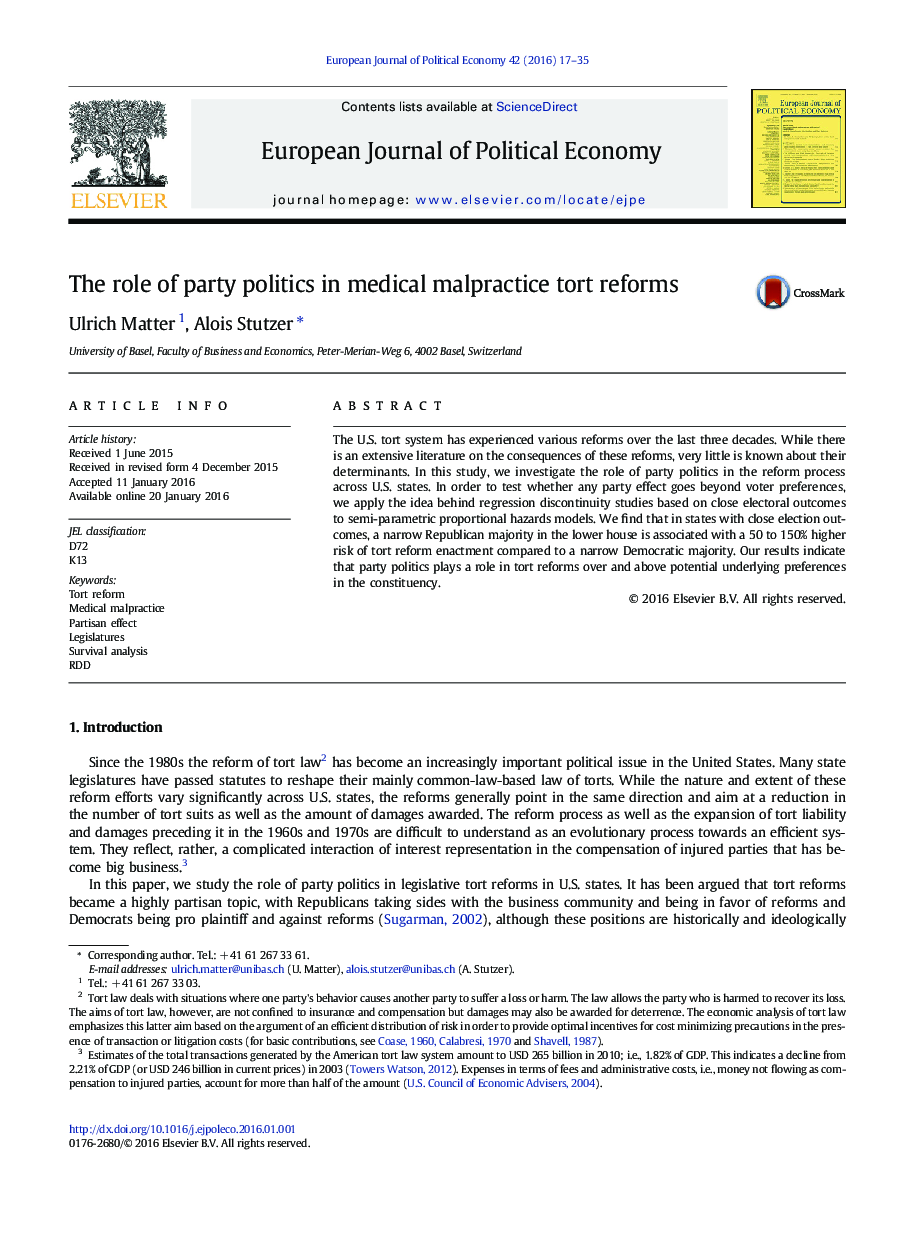| Article ID | Journal | Published Year | Pages | File Type |
|---|---|---|---|---|
| 5067844 | European Journal of Political Economy | 2016 | 19 Pages |
â¢We analyze the politico-economic forces driving medical malpractice tort reforms.â¢We test whether any party effect goes beyond preferences in the constituency.â¢We apply the idea behind regression discontinuity studies to Cox models.â¢Our results indicate that party politics matters beyond potential voter preferences.â¢The insights have implications for the study of the consequences of tort reforms.
The U.S. tort system has experienced various reforms over the last three decades. While there is an extensive literature on the consequences of these reforms, very little is known about their determinants. In this study, we investigate the role of party politics in the reform process across U.S. states. In order to test whether any party effect goes beyond voter preferences, we apply the idea behind regression discontinuity studies based on close electoral outcomes to semi-parametric proportional hazards models. We find that in states with close election outcomes, a narrow Republican majority in the lower house is associated with a 50 to 150% higher risk of tort reform enactment compared to a narrow Democratic majority. Our results indicate that party politics plays a role in tort reforms over and above potential underlying preferences in the constituency.
Graphical abstractDownload full-size image
